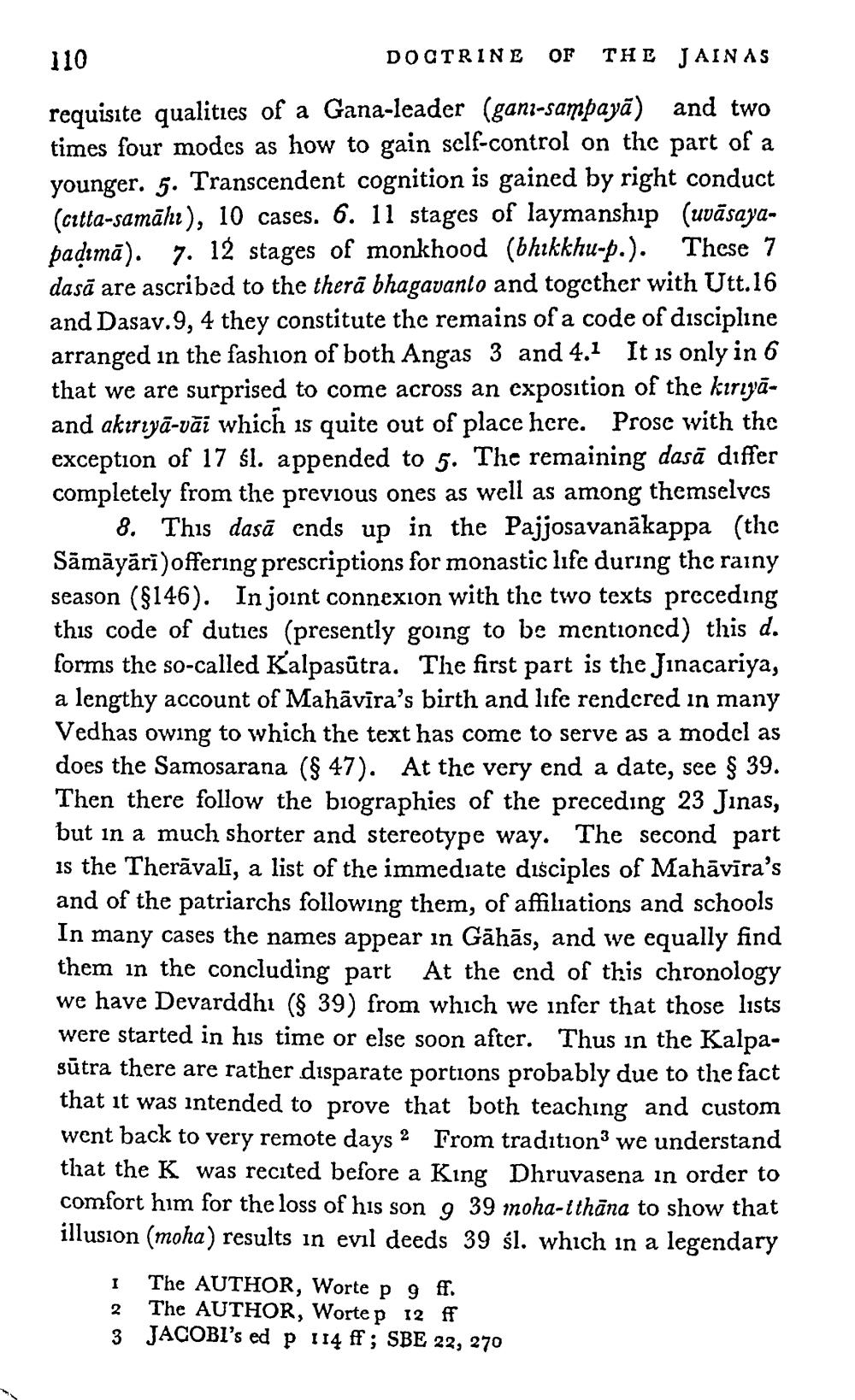________________
110
DOCTRINE OF THE JAINAS requisite qualities of a Gana-leader (ganı-sampayā) and two times four modes as how to gain self-control on the part of a younger. 5. Transcendent cognition is gained by right conduct (citta-samāhe), 10 cases. 6. 11 stages of laymanship (uvāsayapadımā). 7. 12 stages of monkhood (bhikkhu-p.). These 7 dasā are ascribed to the therā bhagavanlo and together with Utt.16 and Dasav.9, 4 they constitute the remains of a code of discipline arranged in the fashion of both Angas 3 and 4.1 It is only in 6 that we are surprised to come across an exposition of the kiriyāand akırıyā-vāi which is quite out of place here. Prose with the exception of 17 sl. appended to 5. The remaining dasā differ completely from the previous ones as well as among themselves
8. This dasā ends up in the Pajjosavanäkappa (thc Sāmāyārī)offering prescriptions for monastic life during the rainy season ($146). In joint connexion with the two texts preceding this code of duties (presently going to be mentioned) this d. forms the so-called Kalpasūtra. The first part is the Jinacariya, a lengthy account of Mahāvira's birth and life rendered in many Vedhas owing to which the text has come to serve as a model as does the Samosarana (8 47). At the very end a date, see § 39. Then there follow the biographies of the preceding 23 Jinas, but in a much shorter and stereotype way. The second part is the Theravali, a list of the immediate disciples of Mahāvīra's and of the patriarchs following them, of affiliations and schools In many cases the names appear in Gāhās, and we equally find them in the concluding part At the end of this chronology we have Devarddhi ( 39) from which we infer that those lists were started in his time or else soon after. Thus in the Kalpasūtra there are rather disparate portions probably due to the fact that it was intended to prove that both teaching and custom went back to very remote days 2 From traditionwe understand that the K was recited before a King Dhruvasena in order to comfort him for the loss of his son 9 39 moha-tthāna to show that illusion (moha) results in evil deeds 39 śl. which in a legendary 1 The AUTHOR, Worte p 9 ff.
The AUTHOR, Worte p 12 ff 3 JACOBI's ed p 114 ff ; SBE 22, 270
2
The




